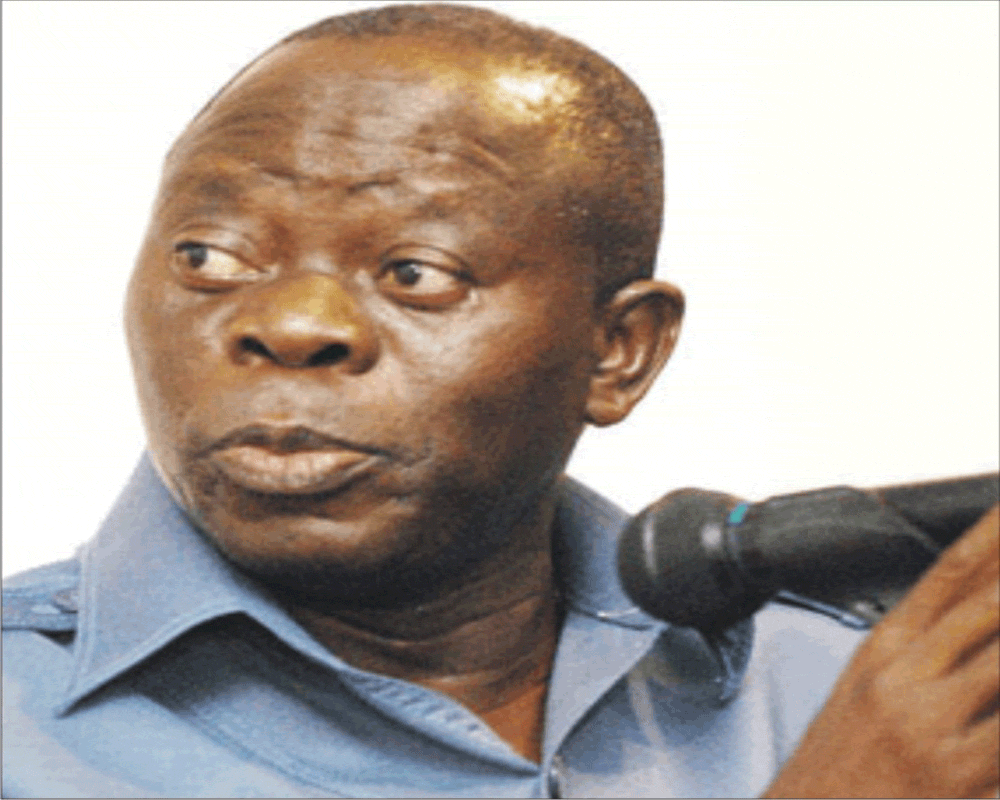Mental Health And Stigmatization, A Call To Operationalise The Mental Health Law
Mental health is a major aspect of human health however for countries in sub-Saharan Africa it is the most neglected aspect of public health. Despite the overwhelming data by the World Health organization on mental health disorders, government at all level continues to live in denial.
For many, the lack of commensurable awareness, sensitization and effective legislation may be affecting discrimination and sensitization.
In 2021, 45-year-old, Mrs Luchy Azubuike, a resident of Rumukpokwu in port Harcourt lost her adopted child to iron deficiency.
The once vibrant woman said she went into a melancholic state forcing her to lose every reason to live and continue with her daily activities. Luchy a teacher before the sad incident suddenly stopped working and her social life and personal hygiene began to dwindle.
“I lost the appetite for life and withdrew from a lot of physical activities. The period was traumatic for my husband because I couldn’t do anything for myself. For the understanding husband I have, my case would have been similar to the cases on the streets which are not being managed”
Luchy was diagnosed with what is termed as “depressive stupor” by a shrink in a clinic in Port Harcourt, Elpida, a private psychiatric that caters for persons with mental disorders.
According to Dr. Metu Izuchukwu, resident psychiatrist of Elpida, depression, anxiety disorders, substance use disorders are the most common mental health disorders in Nigeria
The Port Harcourt based Mental health Physician described mental disorder as a deviation from what is expected from someone who is said to be mentally healthy, affecting the way the person functions socially or occupationally.
He described depressive stupor as a mental health condition which immobilizes a patient’ and which usually occurs when the person ignores early symptoms of depression.
Luchy said she was stigmatized: “Nobody wanted to carry the cross, everyone was seeing it as a difficult situation and it was difficult to handle. Friends and some family deserted me and I was left alone with my husband to bear the burden”
“a lot of people thought I was suffering from a mysterious illness even in church people feared to communicate and interact and those who dared shared a handshake would hurriedly go to wash their hands for fear of being infected”
For Mrs Serena Kelechi, a resident of Port Harcourt, whose husband is diagnosed with “psychotic depression” the disorder interfered with his social and interpersonal life and managing the condition is “tedious” especially during the episodic moments.
She expressed concern on the discrimination associated with catering to a partner with mental health challenges.
“The stigma is so much, especially when the sufferer is responding negatively to anti-psychotic medication. In the case of my partner, he had tardive which lingered for a while and caused involuntary movement of his mouth and this made him suffer a lot of stigmatizations”
“It also made him withdraw from people and this affected his source of income, his self-esteem and interpersonal relationships with people,” she said.
Speaking further, the mother of five noted that the adverse effect of the drug “is worse than the mental disorder itself” appealing that the mental health laws should be strengthened to address stigmatization
Stigma, prejudice and discrimination against people with mental illness can be subtle or it can be obvious but no matter the volume, it can lead to harm and there should be strong institutions to support patients fight the discrimination.
A consultant neuropsychiatrist, Prof Donald Chukwujekwu says that stigma and discrimination is a danger to sufferers as it can make mental problems to become worse and sometimes, even discourage a person from seeking or getting the help that she needs.
Despite the overwhelming statistics by World Health Organization in 2019 that Nigeria has Africa’s greatest number of cases of depression which is progressing, mental health awareness and sensitization in Nigeria has faced minimal success while the society continues to live in denial.
The call for more increased sensitization and campaigns becomes imperative following the level of ignorance and the perception of the society on mental illness. opinions amongst a selected group of market women in a small market in Mini Orlu, Ada George in Port Harcourt, nine of every ten had no idea of mental health and mental disorder and others saw mental disorders as “Mad people”
With the perception that people with mental disorders are lunatics it is evident that there is an information gap on the issue of mental disorders among and this becomes worrisome in a society with growing issues of mental disorders.
The misconception and attitude of society towards mental disorders is a pointer that awareness and the realities of the illness are unequal.
Head of department, mental health, University of Port Harcourt, Prof Donald Chukwujekwu, has faulted the misinformation that infer that people with mental disorder are lunatics.
Prof Chukwujekwu, said perception and cultural attitudes fuels the ignorance and theories of how people see mental disorders.
He said with the implementation of the 2021 mental health bill, people who stigmatize persons with mental health disorders may risk a jail term if convicted.
According to him, “This law protects the people with mental illness, from all forms of abuse, violence and torture. It empowers and advocates for their rights to access social services such as healthcare, education, employment and house. under this new act, anyone who violates the rights of people with mental illness if convicted, will be imprisoned for at least one year or fine of five hundred thousand naira”
Prof Chukwujekwu speaking on improved awareness and sensitization on mental illness, expressed worry over the attitude of government towards issues of mental health despite its severity. He stressed that lack of inefficient manpower is a critical constraint on neuropsychiatry.
He also revealed that beyond addressing the issues of stigmatization, government should prioritize and expand mental health services.
“According to WHO statistics released in January, 2022 over 20 million Nigerians are currently suffering from various degrees of mental illness or disorder. So, if you look at these statistics, people would think that we have enough manpower but we have less than 250 certified psychiatrists to take care of more than 200 million persons who are living in Nigeria”
He faulted the misconception that persons with mental disorders cannot function optimally in the society, noting that though some mental health disorder is a lifelong condition, adequate medical care can manage the condition.
Buttressing, Prof Chukwujekwu who is also the head of child and adolescent, mental health unit, department of neuropsychiatry, university of Port Harcourt said accessibility and deliverability of psychiatric care is relatively difficult in Nigeria, noting that Nigeria has “a ratio of about one qualified psychiatrist to about a million Nigerian”
While calling for the implementation and domestication of the 2021 mental health law, Prof Chukwujekwu, urged government to subsidize treatment of mental disorders beyond was is captured in the National health insurance scheme which gives limited access to patients. He stressed it will be viable in addressing issues of mental illness, discrimination and stigma.
Mental health is an integral part of health and well-being, and yet it’s been neglected in this part of the world. In 2019, the World Health Organization (WHO) revealed that nearly a billion people including 14% of the world’s adolescents were living with a mental disorder.
In Nigeria, mental health is a neglected issue in public health and with the misconceptions that attribute mental health problems to several traditional myths, poor sensitization and awareness, persons living with mental disorders suffer huge discrimination and stigma.
To put an end to the discrimination and stigma, operationalizing the mental health law, 2021 which was signed by the outgone president becomes imperative as it addresses the major concerns plaguing mental health delivery, promotes and protects and addresses stigma and discrimination in home, schools, workplace communities and even mental health care system.



